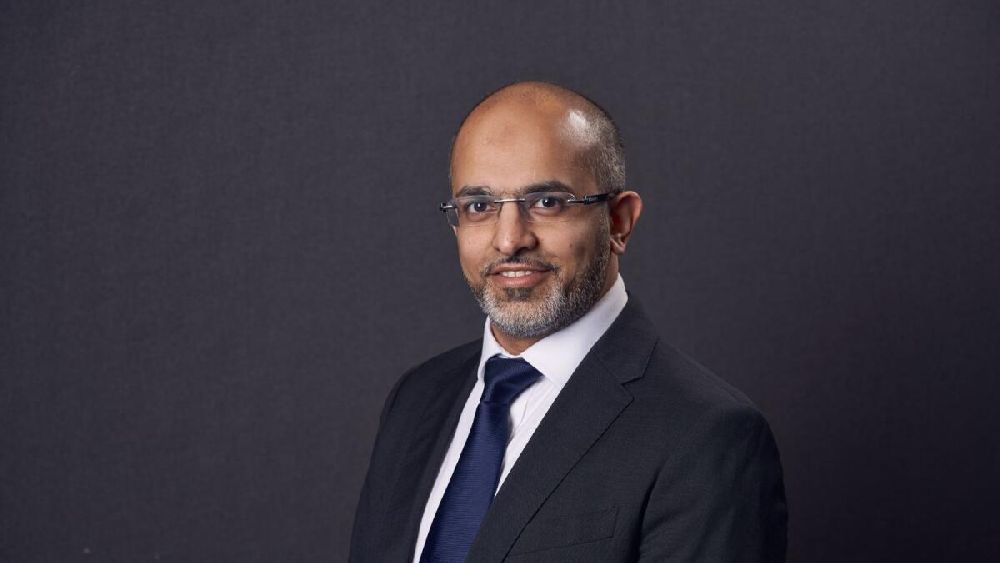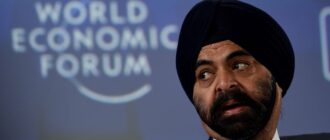
.
Bahrain-based GFH Financial Group’s $100 million sukuk fund will support Islamic financial development agendas and contribute to the wider economic recovery of the GCC, says Salem Patel, the Head of Asset Management.
Patel is responsible for managing the bank’s proprietary assets as well as clients’ investments in equity and fixed income funds. He is also a member of the bank’s Management Investment Committee and ALCO. He brings over 20 years of extensive local and international financial industry experience to the group having previously worked in the Financial Services Division with Accenture in London and prior to this as a Financial Analyst with LongView Partners, London. He began his career working in Equity Research at UBS and Societe Generale.
He holds several Directorships including Falcon Cement Company and Roebuck Asset Management. He graduated from the City University Business School in London with a BSc (Hons) in Business Studies specialising in finance and has obtained several certifications including: the Islamic Finance Qualification (IFQ) and the Securities and Futures Authorities Registered Representative (SFA). He has also passed all three levels of the Chartered Financial Analyst (CFA) programme and recently completed the Senior Executive Leadership Programme at Harvard Business School.
Khaleej Times spoke with Patel about how GFH’s new $100 (367) million sukuk fund would help financing in Gulf Cooperation Council (GCC) nations.
Edited excerpts from the interview:
How will GFH’s new $100 million sukuk fund help financing in GCC nations?
As economies in the region recover from the pandemic and continue to diversify away from hydrocarbons, increased liquidity will support investment projects across the region within various sectors. The GFH Sukuk Fund, which was launched following an agreement with Credit Suisse to provide attractive financing, will create a pocket of liquidity to help borrowers to fund their liquidity requirements. The fund is among several launched since the pandemic that will support Islamic finance development agendas and contribute to the wider economic recovery of the GCC.
How is GFH trying to generate higher returns through this new sukuk fund?
GFH is using a combination of strategies to provide a higher risk adjusted return for investors in the fund. Our aim is to generate an above average long-term investment return on a risk adjusted basis and a quarterly income distribution of around 6.5 per cent per annum for investors.
The fund will be actively managed to offer the investors the opportunity to gain attractive returns while optimising their investment risk profile through diversifying their holdings. Our strategies for securing a solid return include sukuk selection, portfolio optimisation, modest leverage, and duration management.
The fund will hold a diversified portfolio of sovereign, quasi sovereign, and high yield corporate sukuk and sukuk-related securities. The fund aims to hold a diversified portfolio of Sharia compliant yielding securities, especially fixed income instruments from various GCC countries and issuers.
How does the GFH Sukuk Fund aim to capitalise on post-Covid-19 pandemic economic growth and recovery?
As countries in the region implement their post-pandemic economic recovery strategies, we will see an increased demand for investment and financing to fund projects and stimulate growth.
This economic rebuilding is not just an opportunity for investment banks offering Sharia-compliant products and services to generate elevated returns for investors. It is a chance to support the region’s recovery and make an important contribution to projects that benefit communities. By providing funding to borrowers who wish to secure funding through the issuance of sukuk, our fund will play an important part in the growth and development of Bahrain and its neighbours.
What is the outlook for the global sukuk supply this year?
The sukuk market has grown steadily over the last seven years. Even in 2020, global issuance amounted to $174 (Dh639.12) billion, setting a record. In 2021, global sukuk issuances surged 36 per cent to more than $252 (Dh925.62) billion despite the economic headwinds of the pandemic.
In 2022, sukuk will remain a key financing source in core Islamic finance markets. And despite the surge in oil prices, we expect supply to be robust as borrowers come to the market and drive renewed growth. We have detected strong Islamic investor appetite, and we anticipate more regions outside of the GCC, for example Africa and Europe, to increase sukuk issuances.
ALSO READ:
- 'Arab banks are well prepared to counter cyber-security challenges'
- Star Tech: Coding made fun, thanks to iCodejr.com
As economies improve, we expect to see sukuk plans that were postponed by the pandemic return to the Islamic capital market while others will reach maturity. One interesting trend is green sukuks, which grew by more than 17 per cent year-on-year in 2021 to $15 (Dh55.10) billion and are expected to remain a key theme of the Islamic finance market in 2022. There is no doubt that 2022 will once again test the Islamic finance market but we have every reason to be optimistic and excited about the future of sukuks and more broadly the Islamic finance market, especially here in the GCC.
What has been GFH’s contribution to Sharia-compliant principles?
GFH offers several Sharia-compliant products in different areas to meet our clients’ demands. All are fully compliant with Sharia principles and offer investors an exclusive opportunity to invest in accordance with Sharia principles.










